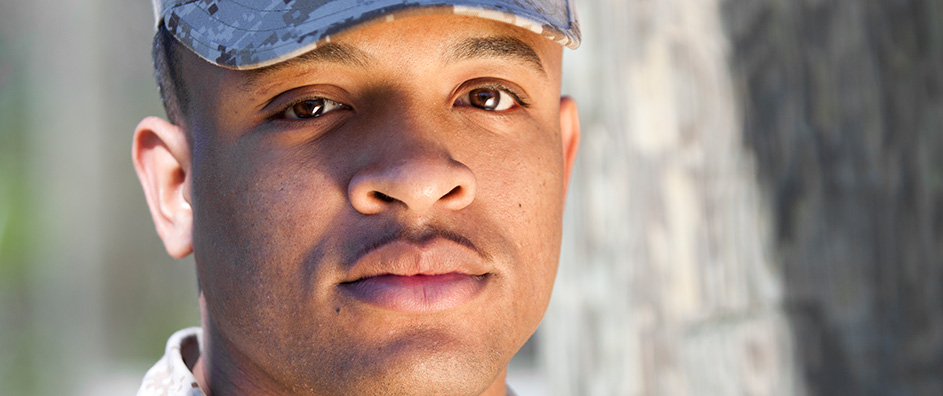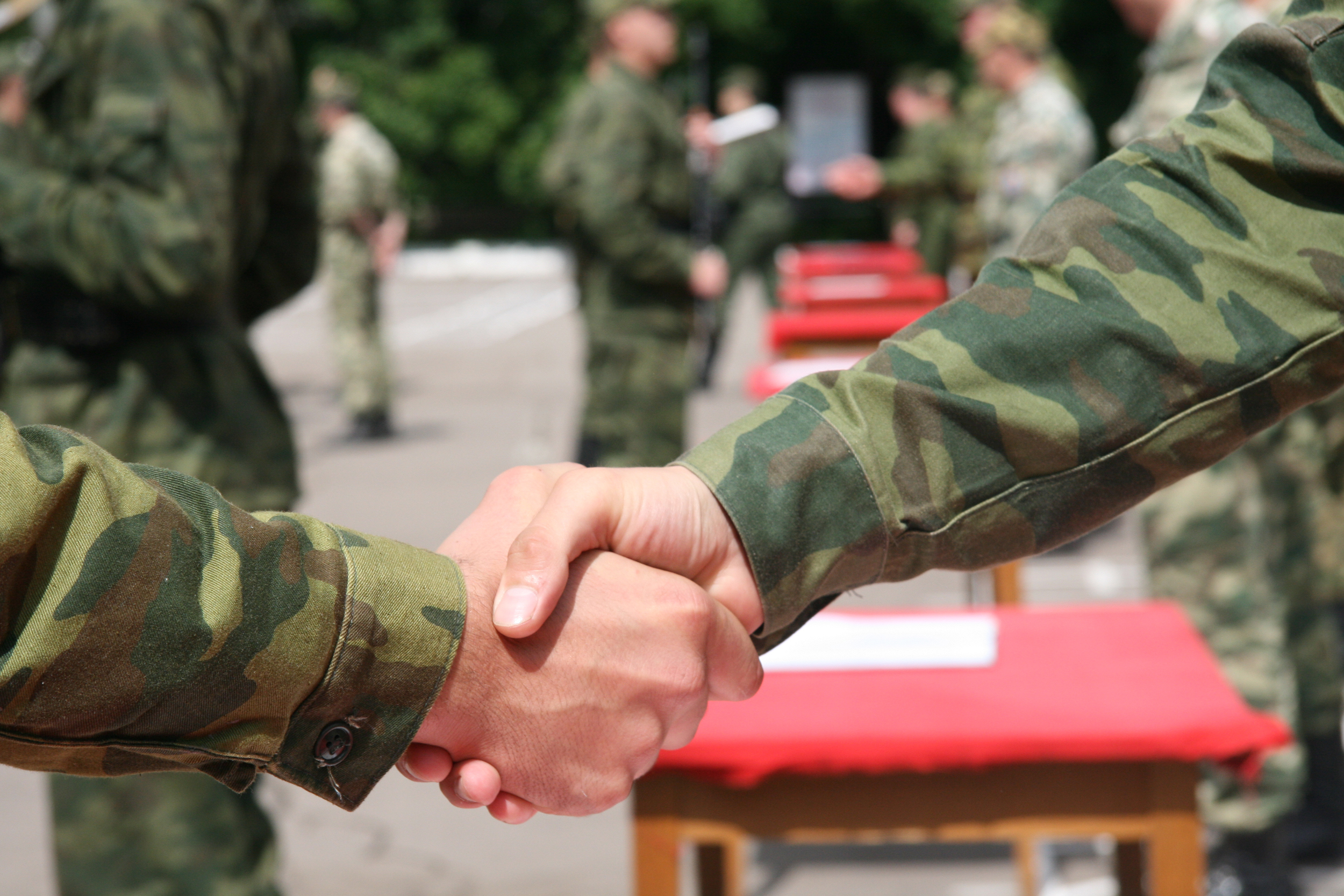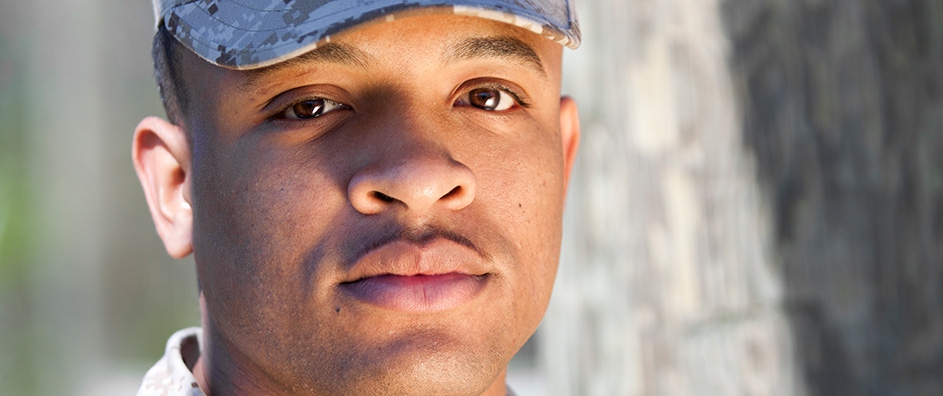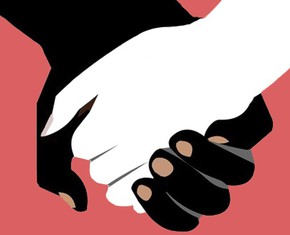The views expressed in our content reflect individual perspectives and do not represent the authoritative views of the Baha'i Faith.
 In my community I volunteer as a “peace counselor,” informing high school kids about what they can expect if they’re thinking about joining the military.
In my community I volunteer as a “peace counselor,” informing high school kids about what they can expect if they’re thinking about joining the military.
I love talking to these bright kids about their options, and steering them away from war. But when they find out I was in the Army and then tell me “Thank you for Your service,” I don’t know how to respond.
I generally say “Um, I had no choice – I was drafted.” But that doesn’t seem like a very gracious response.
I’ve tried just nodding in recognition. Or smiling briefly. Which probably comes off as a grimace, because the truth is, I hate being thanked for my service.
Why? Seems like a harmless thing, right? Well, let me explain.
No matter how heartfelt the thanks might be, I normally get the distinct feeling that it’s a make-up assignment. Remember those in school? You know, I forgot to do my homework, so can I do a make-up assignment?
“Thanks for your service” always feels like a make-up assignment. Why? Because it comes so long after the fact; because it doesn’t actually inquire about war or what it was like; because it casts all returning soldiers in the role of “heroes,” which I despise; and because, most of all, it feels as if an ungrateful civilization, chastised for their failure to thank returning Korean and Vietnam and Gulf War veterans, now has a make-up assignment to make sure we all remember to thank our veterans and eat our peas and floss.
Think about it from my perspective for a minute.
I went to war involuntarily. I did not want to “serve.” The truth is, hardly anyone does. Despite my peaceful activities to try to end the killing in Vietnam, despite my conviction that such an incredibly stupid and pointless war would lead to nothing except meaningless death and destruction, despite my refusal to carry a weapon and kill people, I still got drafted and sent to battle. And back then, most of us didn’t willingly join. The United States military at the time, largely made up of draftees and those who had enlisted because of the draft, became a conscripted, dragooned force, a coalition of the unwilling. Not exactly a good description of “service,” right?
 Even today, with no military draft in place in the United States, we know that our “all-volunteer military” comes mostly from the ranks of the poor. Can’t find a job? No money for college? Join the military, comes the refrain, from high-school counselors and military recruiters and the innumerable ads, posters and billboards in poor communities. Every public high school, thanks to the No Child Left Behind act, has to let military recruiters have unfettered campus access and all the contact information for every student. The heaviest and most productive recruiting happens in poor urban and rural places, dead-end towns and inner cities where few options exist for kids.
Even today, with no military draft in place in the United States, we know that our “all-volunteer military” comes mostly from the ranks of the poor. Can’t find a job? No money for college? Join the military, comes the refrain, from high-school counselors and military recruiters and the innumerable ads, posters and billboards in poor communities. Every public high school, thanks to the No Child Left Behind act, has to let military recruiters have unfettered campus access and all the contact information for every student. The heaviest and most productive recruiting happens in poor urban and rural places, dead-end towns and inner cities where few options exist for kids.
Can you imagine what would happen if we had free colleges?
When you truly serve, unless it’s slavery, you generally do it because you’re impelled by the goodness of your heart. “Can I help you do those dishes?” You know what I mean. And don’t get me wrong – I’m not putting down military service, as long as it’s in the interests of peace, justice and suppressing conflict rather than inciting it, or fighting over land or oil. Likely, the world will always need some form of a military; and I’ve seen soldiers do great things to actually serve others.
But please, don’t thank me for serving, and don’t call me a hero. It cheapens the word to call every grunt a hero. It devalues the actual heroes. And worse, it plays into the idea that the military recruiters love to promote – Hey, kid, you’re 18, want to test yourself against real bullets, instead of those video games? Come on, be all you can be….
In the Baha’i writings, Abdu’l-Baha had a unique, refreshing definition for a true soldier:
I charge you all that each one of you concentrate all the thoughts of your heart on love and unity. When a thought of war comes, oppose it by a stronger thought of peace. A thought of hatred must be destroyed by a more powerful thought of love. Thoughts of war bring destruction to all harmony, well-being, restfulness and content.
Thoughts of love are constructive of brotherhood, peace, friendship, and happiness.
When soldiers of the world draw their swords to kill, soldiers of God clasp each other’s hands! So may all the savagery of man disappear by the Mercy of God, working through the pure in heart and the sincere of soul. Do not think the peace of the world an ideal impossible to attain! – Paris Talks, p. 29.
You May Also Like
Comments

















I was stunned, too, to learn that "No Child Left Behind" has such a military poison-pill within it! What a bitter irony to that apparently well-meaning phrase, whose educational implications (as I understand them from afar) were dicey to begin with.